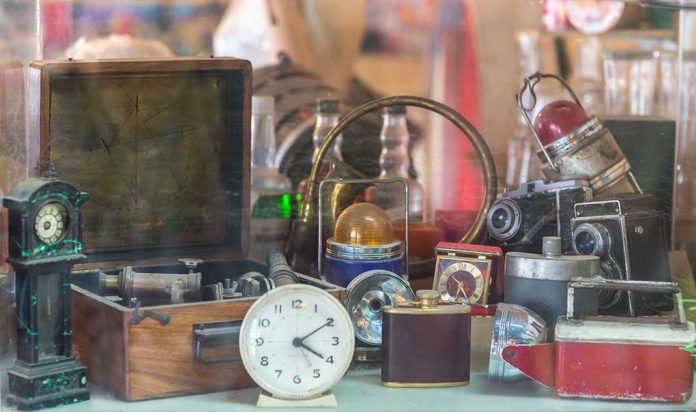
(HealthyAccess) – It’s no surprise that cluttered spaces have been linked to elevated levels of stress. The mess to stress connection is all too apparent in a cluttered home, office, or automobile. While it’s enjoyable to be surrounded by loved objects, these items can quickly clutter a home, making it an unpleasant place to live.
Here are ten signs that it’s time to declutter a living space.
1. Having visitors is embarrassing.
When the normal mess of daily life descends into overwhelming clutter, it might be embarrassing for visitors to stop by unannounced. Instead of feeling proud to welcome visitors, clutter has the psychological impact of creating negative feelings about the home. Feeling that embarrassment is a strong sign that it’s time to declutter the space.
2. A storage unit sounds like a good idea.
If renting or building a storage space to create more room seems like a good idea, it might be time to declutter the space. Even in the smallest of homes, organizing can help us make the space for necessities. Giving serious thought to spending money on a space to store unused (or rarely-used) items is a sign that more organization is a must–not more storage.
3. Organizational tools and items fill the home.
Got a Pinterest board dedicated to storage space? If so, decluttering is in order. While organizational tools can help make the best use of a living space, simply purchasing or looking for them indicates that it may be time to organize and declutter.
4. The floor isn’t visible, or it’s hard to make a path for walking.
If the floor is obscured by objects and it’s difficult to move through the house or get into walk-in closets, it may be time to declutter. Researchers at UCLA’s Center on Everyday Lives and Families have found links between the stress hormone cortisol and how much clutter is in the home. When people can’t move freely in their space, anxiety can set in.
5. Needed items get lost often.
If needed items get lost on a regular basis, it might be time to declutter. While misplacing keys or a phone is a common problem for many adults, clutter can make the problem worse–resulting in lost bills or other important documents and items.
6. Storage boxes sit untouched for six months or more.
Storing items in boxes or a storage unit for more than six months warrants a decluttering session. Have an unused box of Tupperware? Seasonal clothes that hibernate year-round? Hobby items that are no longer interesting? Donate them to make extra space.
7. Papers, books, and other items cover tabletops and counters.
Does the kitchen counter or dining room table look like a mountain of paper? If surfaces for work and dining are obscured by junk mail, books, or other items that don’t belong there, it’s time to clean up and get organized.
8. The closet is full but there’s nothing to wear.
When closets are stuffed but there’s nothing to wear, it’s time to clean out.
While organizing the wardrobe, it’s not unusual to find long-forgotten pieces of clothing. Laughable fashion faux-pas or out-of-date clothing could prove to be a fun social media diversion–model them for laughs, then donate. Getting rid of clothes that don’t fit properly can dramatically boost self-esteem. (And a cleaner closet feels great, too.)
9. The idea of organizing induces anxiety.
If the thought of decluttering feels too stressful or overwhelming to begin, it’s past time to take care of the clutter. While it may seem like an enormous responsibility, there are a few tips that can help make this easier.
- Take it in small steps. Start by cleaning out one junk drawer or one closet. Focus on the pantry or just choose one cabinet and the kitchen. It doesn’t all have to be done at once.
- Ask for help. For those who live alone, consider whether there are organizing or cleaning services that can help out–or friends who are great at decluttering and wouldn’t mind helping out in exchange for free pizza. For people who live with a partner and/or children, make it a group endeavor, so that the responsibility is split. Assign everyone a small task to start and create a reward at the end for all the hard work.
- Do what can be done. If we are experiencing depression or other mental healthcare challenges, we might not have the ability to do what we want to do; instead, just do what is possible. Load the dishwasher. Take out the trash. Do one thing that brings comfort to the space, but don’t try to do it all.
10. Home is stressful, rather than calm.
If there’s a major sign that it’s time to declutter, it’s when the space creates stress rather than calm. Many people are not fully aware of how clutter contributes to daily stress levels. If looking around invokes that sense of unease, it may be time to get to work–using the above tips to manage it without feeling overwhelmed.
Clutter happens. Having a well-loved and lived-in home means a mess from time to time. It’s helpful to take a closer look at clutter and consider how it can be cleared for a happier, healthier home.
Copyright 2021, HealthyAccess.com













